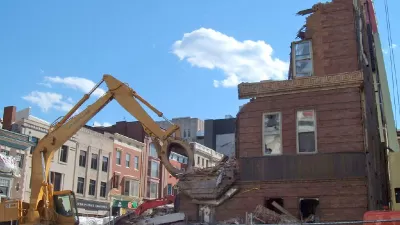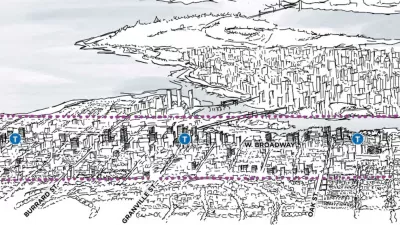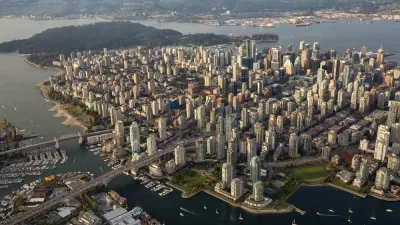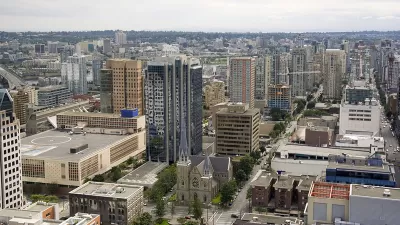Transit oriented development doesn’t have to mean evictions and demolitions for existing renters, but often it does.

New condominium developments in Vancouver are forcing unnecessary displacement, Christopher Cheung argues in a piece for Tyee. He contends that there is room in the city for more density and new condos, if developers are encouraged to target less dense areas. "Data analyst Jens von Bergmann and transportation planner Denis Agar created visualizations of census data and found that many residential areas already served by frequent transit could handle more density with less displacement," Cheung reports.
Dense areas in Vancouver have been sites of more affordable communities, "But when the market tipped into favouring condos, Shakel was demovicted. The newcomers who bought in the condo building that replaced her home included company presidents and business managers," Cheung writes. If instead of targeting rental properties, developers looked to build up owner occupied housing, they would be dealing on more even footing with a community less vulnerable to displacement.
FULL STORY: It’s Possible to Develop New Housing Without Displacing Tons of Renters. Why Don’t We?

Planetizen Federal Action Tracker
A weekly monitor of how Trump’s orders and actions are impacting planners and planning in America.

Maui's Vacation Rental Debate Turns Ugly
Verbal attacks, misinformation campaigns and fistfights plague a high-stakes debate to convert thousands of vacation rentals into long-term housing.

Restaurant Patios Were a Pandemic Win — Why Were They so Hard to Keep?
Social distancing requirements and changes in travel patterns prompted cities to pilot new uses for street and sidewalk space. Then it got complicated.

In California Battle of Housing vs. Environment, Housing Just Won
A new state law significantly limits the power of CEQA, an environmental review law that served as a powerful tool for blocking new development.

Boulder Eliminates Parking Minimums Citywide
Officials estimate the cost of building a single underground parking space at up to $100,000.

Orange County, Florida Adopts Largest US “Sprawl Repair” Code
The ‘Orange Code’ seeks to rectify decades of sprawl-inducing, car-oriented development.
Urban Design for Planners 1: Software Tools
This six-course series explores essential urban design concepts using open source software and equips planners with the tools they need to participate fully in the urban design process.
Planning for Universal Design
Learn the tools for implementing Universal Design in planning regulations.
Heyer Gruel & Associates PA
JM Goldson LLC
Custer County Colorado
City of Camden Redevelopment Agency
City of Astoria
Transportation Research & Education Center (TREC) at Portland State University
Jefferson Parish Government
Camden Redevelopment Agency
City of Claremont





























